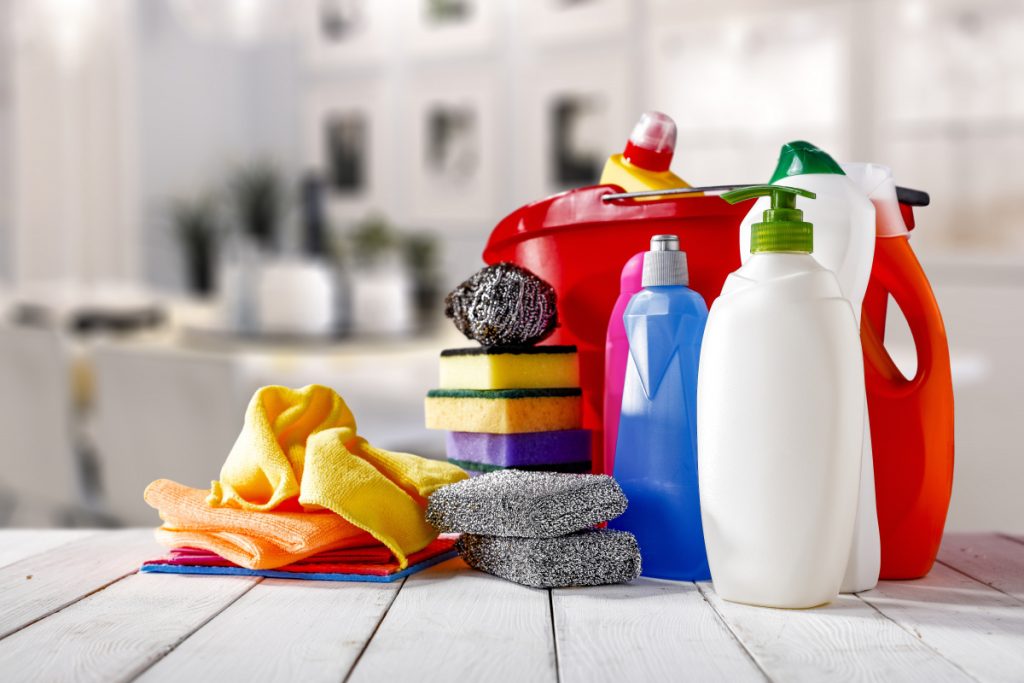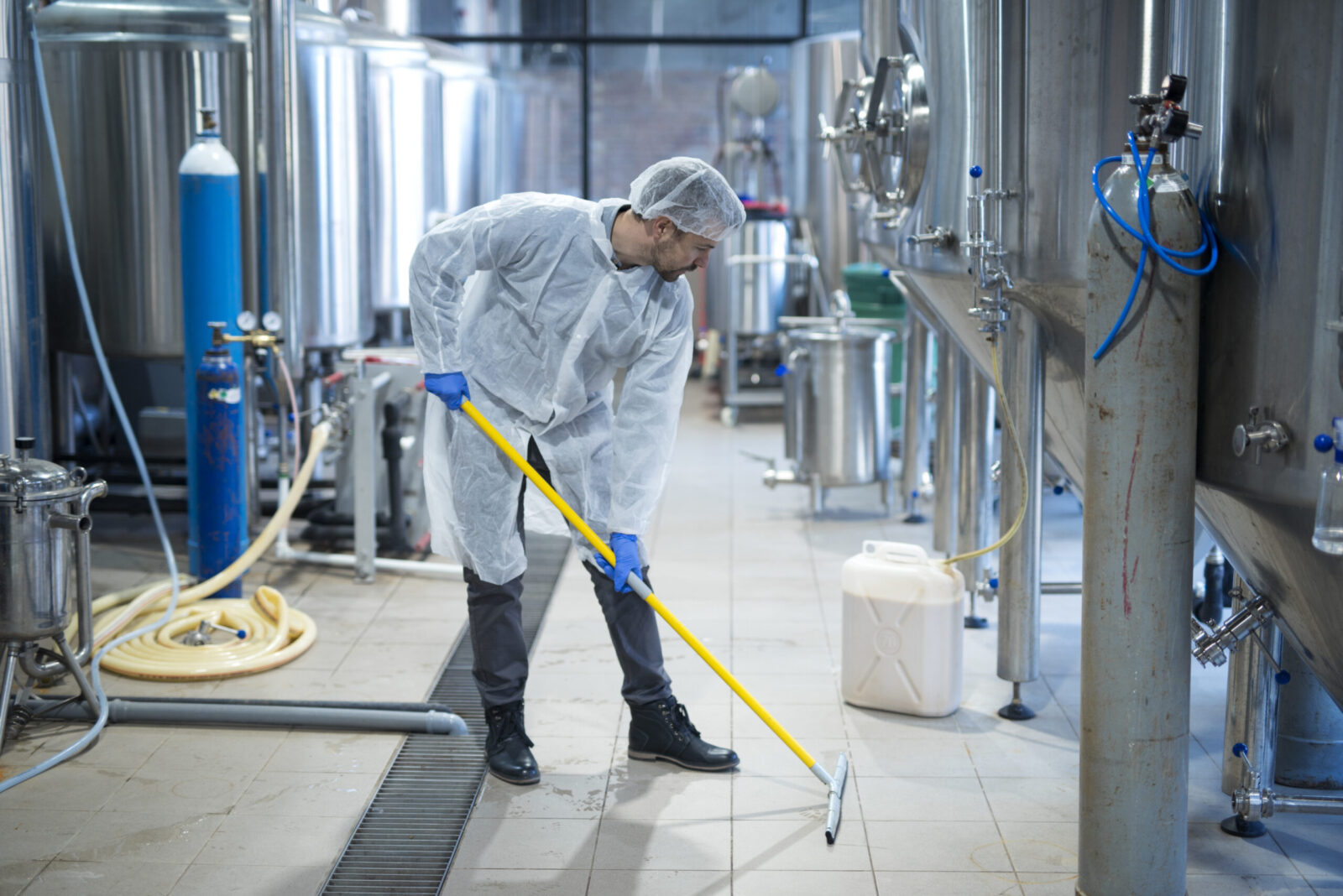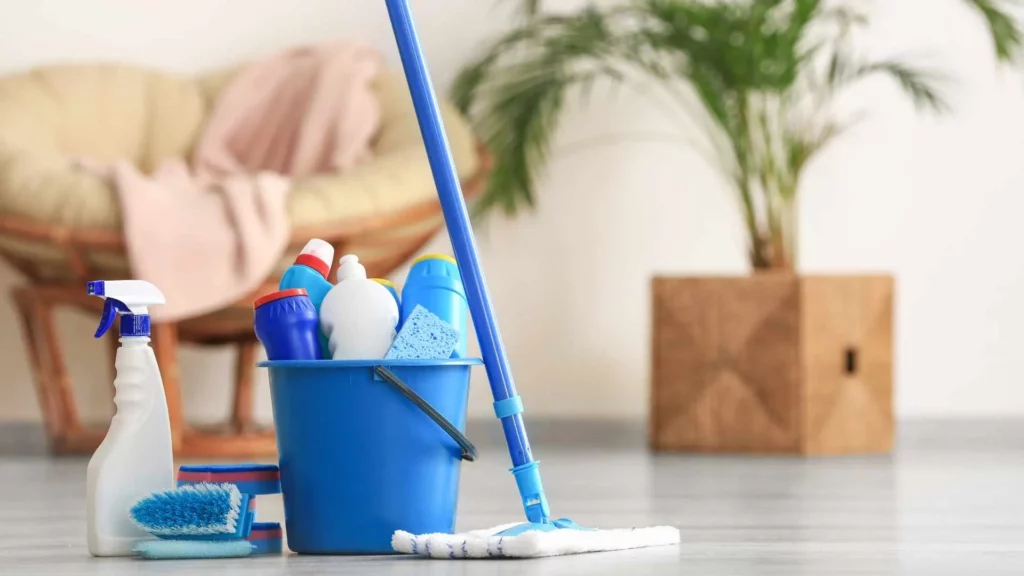
Choosing The Right Cleaning Supplies For Your Business – A Buyer’s Guide
Maintaining clean business premises is not just about appearance—it enhances employee well-being, creates a professional environment that delights customers, and...

Get 20€ off on your first order!
When it comes to maintaining cleanliness and safety in industrial spaces, choosing the right floor cleaner is critical for addressing challenges like Persistent stains, high traffic, and maintaining specialized flooring materials. This comprehensive guide will help you navigate the options and select the best industrial-grade floor cleaner for your specific needs. For an overview of general floor cleaner selection, refer to our main guide.
Different flooring materials require different cleaning agents. For example:
Check product labels or consult the manufacturer’s guidelines for compatibility.
The cleaning strength should align with the specific requirements of your task to achieve the best results:
| Cleaning Requirement | Recommended Product Type |
| Light dirt and dust | Neutral surface cleaners |
| Areas requiring grease and oil removal | Degreasers |
| Static-prone areas | Antistatic cleaners |
| Stains that require specialized solutions | Industrial cleansers |
For everyday cleaning, surface cleaners are sufficient, but tougher tasks may require specialized products.
European standards emphasize environmentally friendly and non-toxic cleaning products, which are essential for maintaining both safety and sustainability. For instance, products adhering to EU ecolabel standards ensure contributing to sustainability and meeting regional standards.
European standards emphasize environmentally friendly and non-toxic cleaning products. Look for:
Consider how the cleaner will be applied:

To address various cleaning scenarios, here are the top specialized products and when to use them:
Surface Cleaners: Ideal for regular maintenance and general cleaning. Learn more about choosing the best surface cleaners in our dedicated guide.
Degreasers: Designed to cut through heavy grease and oil in factories or workshops. Explore options here.
Antistatic Cleaners: Perfect for reducing static buildup in areas with electronic equipment. See our guide on antistatic cleaners.
Toilet Cleaners: Industrial toilet cleaners are an essential part of maintaining a clean and hygienic workplace.
For industrial washrooms, check out toilet cleaners to Ensure a hygienic and fresh-smelling environment.
Selecting the right product requires a clear understanding of your environment and cleaning goals. Follow these steps for an effective decision:
For more in-depth guidance, refer to these related articles:
We hope this guide has been valuable in helping you navigate the key factors for selecting the best industrial-grade floor cleaner, from floor material compatibility to environmental and safety considerations. Whether you’re maintaining a factory, warehouse, or office space, we’re here to support your cleaning needs.
Explore our full range of industrial floor cleaners on Droppe, where trusted brands and high-performance solutions are just a click away.
Have questions or need assistance in choosing the right cleaner for your facility? Don’t hesitate to reach out—we’re always here to help ensure your cleaning tasks are handled with confidence and efficiency.
– The Droppe Team
It depends on the cleaner and floor type. Always check the product label for compatibility with your specific flooring material.
The frequency depends on foot traffic and the type of work being done. High-traffic areas may need daily cleaning, while others might only require weekly upkeep.
Look for biodegradable and low-VOC products to ensure environmental safety. Many cleaners meet EU eco-label standards.
Yes, but make sure the cleaner is compatible with your machine. Some products are specially formulated for use in industrial scrubbing machines.
Test any new cleaner in a small area first. If damage occurs, consult the manufacturer and consider switching to a gentler cleaner suitable for your flooring.
Thank you! You've signed up for our newsletter.



















Maintaining clean business premises is not just about appearance—it enhances employee well-being, creates a professional environment that delights customers, and...

Not sure which cleaner is best for your floors? This article will provide you with all the information you need...

Selecting the right disposable cutlery is key to running efficient food service operations, whether you’re in hospitality, catering, or food...

Maintaining clean business premises is not just about appearance—it enhances employee well-being, creates a professional environment that delights customers, and...

Not sure which cleaner is best for your floors? This article will provide you with all the information you need...

Selecting the right disposable cutlery is key to running efficient food service operations, whether you’re in hospitality, catering, or food...
Get 10€ off on your first order!
Save 30% by buying directly from brands, and get an extra 10€ off orders over €100
Save 30% by buying directly form brands, and get an extra 10€ off orders over €100